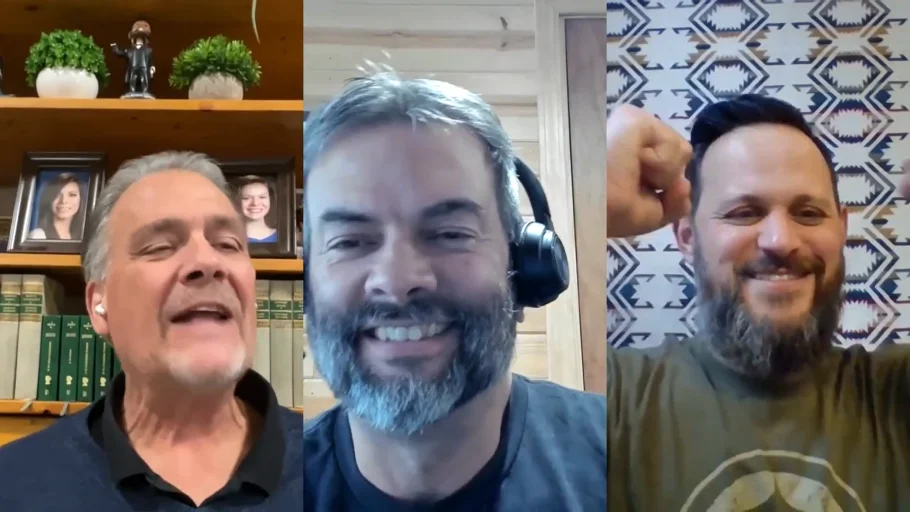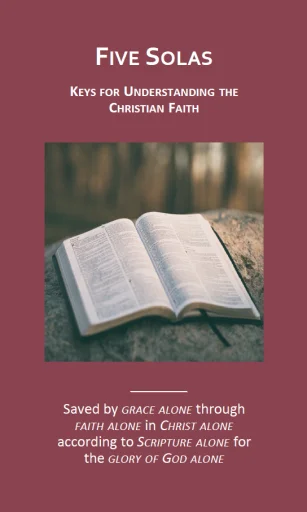Me: One of the things I’ve noticed with you and your evangelism. You speak a lot about some key doctrines like justification, or the great exchange. Explain why that’s important to you? How do the doctrines of the church fit into evangelism with an unbeliever?
Tony: Oh, what else is there!? We are communicators and what we’re communicating is the doctrines of the Bible. The doctrine of the New Testament, of Christianity, the whole Bible from Genesis to Revelation, and explicitly the revelation of Jesus Christ to the world. Doctrine just means teaching.
. I think at your core you need to get good at your pedagogy, you must increase in your teaching skill. Instead of arguing with somebody, or simply having a monologue, a mere proclamation to them, let’s learn to teach them. What are some good pedagogy skills? Asking questions is a really good way to lead the conversation. As far as doctrines go, we’re all about doctrine. Don’t believe the nonsense that “we shouldn’t talk about doctrine, let’s just talk about Jesus.” If you’re talking about Jesus, you’re talking about some form of doctrine. There’s no dichotomy that way. We shouldn’t be afraid of doctrine and it doesn’t need to be sour or dusty. The doctrine of the Bible is beautiful, the doctrines of Christ, the doctrines of grace are tremendous and glorious.
I try to mix up my gospel presentations. When I say presentation, I don’t mean a monologue, I mean I present the gospel in didactic form. I try to mix them up with various doctrines. You might call them various perspectives on the cross, or angles to the cross, because I always want to talk about that moment, the Calvary-oriented doctrines like redemption.
What does redemption have to do with? It has to do with us being enslaved to sin, God purchasing us out of that slave market. With a price, not with silver and gold, but with precious blood of the lamb.
You’ve got justification. What is that? I won’t use that big word with people, but I will break down that truth in simpler words to the unbeliever. I want to get the truth, the concept, of justification across to people. That’s why I like to mention the great exchange. It’s a two-way transaction, our sins go to Christ on the cross and His righteousness comes to us by faith. I won’t use a big word like imputed usually but credited or put on us. The Bible says we’ve been clothed with Christ righteousness. Martin Luther said it well, that justification by faith is the heart of the Gospel. That’s probably the angle to the cross that I share the most and it’s the most second-nature to me.
I will deliberately, not only for the unbeliever’s sake, but also for my own soul sake, study and therefore teach (i.e. share the gospel) via another lens like redemption or propitiation. Propitiation is another one of my favorites. It is the truth that that because of our sins, God is rightfully angry at us. He has a righteous wrath toward our sin and yet when Christ died on the cross, as our substitute, he bore our sins in his body on the cross and he absorbed the wrath of God. He satisfied the righteous anger of God against my sins. He placated or appeased the wrath of God through his death on the cross. I think that is a core of the gospel that I also believe has been lost in many, many people’s understanding and this presentation of the gospel. Christ is the propitiation for our sins.
Then there’s substitution and there’s regeneration, that were born again not by the will of man, but by blood and by the will of God. What I’ll do sometimes, before I go on a gospel outreach I’ll take a certain doctrine, a cross-centered doctrine, and determine to emphasize this today. When I’m talking with leaders, because it helps, you might even need to study a little bit beforehand. If I have a week-long event, I’ll do seven different doctrines that I will purpose to share the gospel through that doctrine, that aspect of the gospel.
Me: Absolutely. I love the, the idea you brought out a little bit earlier that evangelism is teaching. One of the things I’ve experienced myself in evangelism is the joy of teaching, explaining things, and seeing that light bulb come on. I remember a couple years, one of the people that attended the Testify Camp during the Iowa State Fair. He had gone through the training and this was his first experience in evangelism. He was at the booth talking to various people and got into a conversation with a younger couple. Afterwards he told me, “I’ve never sat down and explained this to anyone before. Just seeing them get it and understand it and to see how they appreciated that is so great.” He was very excited about that. There is there is great joy in evangelism.
Tony: Right. It’s a myth in the church that says that when you try to share your faith, you’re going to get shut down. They tell you that people are going to be angry with you, you’re going to be spit on. The clear majority of the time, over 90%, that is not the case. When you share your faith with love and gentleness most people either are interested and kind with it or they’re kind and not interested. The Holy Spirit is still saving a remnant today. The Holy Spirit is still calling out people for his own possession and we just have to go and see where the Holy Spirit is working. That’s part of our job is to find out if the Holy Spirit is working in this soul today. If they’re not interested, that’s a signal to me that the Holy Spirit’s not working there that day. Maybe next year, when Joe meets him the Holy Spirit will be working in Him. So, I don’t have to take it personally, when somebody is not interested, or somebody rejects what I’m trying to share with them. I don’t take it personally because I just recognize, “Hey, it’s a matter of the Holy Spirit opening up eyes and drawing people to himself.”
Me: Yes, it does take often multiple encounters with people to till that soil. We can be tilling, planting, or watering. We know that God makes it grow.
Part 1: Profile
Part 2: Booth Ministry
Part 3: Apologetics
Part 5: Handling Conversations
Part 6: Resources
 How Do I Proclaim the Gospel Boldly, but with Gentleness and Respect?
How Do I Proclaim the Gospel Boldly, but with Gentleness and Respect?
 Podcast Episode 6 with Steve Sanchez
Podcast Episode 6 with Steve Sanchez
 Five Solas Business Card
Five Solas Business Card
 City of Refuge Pamphlet
City of Refuge Pamphlet